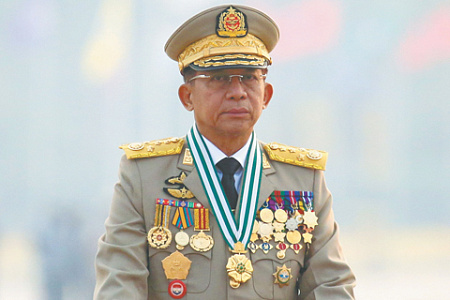
Myanmar’s military junta, which seized power in a 2021 coup, has lifted the state of emergency and announced that parliamentary elections will be held in December. The move comes as the military continues to justify its overthrow of the democratically elected government, led by Nobel Peace Prize laureate Aung San Suu Kyi, by citing unsubstantiated claims of fraud in the 2020 election. Western media and internal opposition groups have already voiced strong skepticism, asserting that any election held under the current regime cannot be free or fair.
In a seemingly contradictory gesture, the head of the military junta, Senior General Min Aung Hlaing, recently laid a wreath at a monument to General Aung San, the hero of Myanmar’s independence and the father of the very leader his regime has imprisoned. This rare public act of reverence by the junta leader is widely seen as a calculated attempt to co-opt a powerful national symbol and build a veneer of legitimacy ahead of the controversial polls. The ceremony took place on Martyr’s Day, which commemorates the 1947 assassination of General Aung San and his cabinet members.
Meanwhile, Aung San Suu Kyi remains completely hidden from public view, reportedly serving a 27-year prison sentence for a series of charges widely condemned as politically motivated. Her party, the National League for Democracy (NLD), which secured a landslide victory in 2020, has since been outlawed by the junta, effectively dismantling the country’s main democratic opposition. While unconfirmed reports have suggested she may have been moved to house arrest, her precise condition and location remain unknown.
The junta’s push for elections is occurring against the backdrop of a brutal and widening civil war. The military is estimated to control only about half of the nation’s territory as it battles a formidable alliance of ethnic armed groups and pro-democracy resistance forces. Human rights activists claim that since the coup, nearly 7,000 anti-regime activists have been killed and almost 30,000 arrested, though the military government dismisses these figures as inflated.
The international community remains a key factor in the crisis. Neighboring China is watching events closely, while the United States’ interest may be growing due to Myanmar’s significant deposits of rare earth metals. However, regional bodies such as the Association of Southeast Asian Nations (ASEAN), of which Myanmar is a member, have so far failed to meaningfully intervene or pressure the junta to change its violent course.
